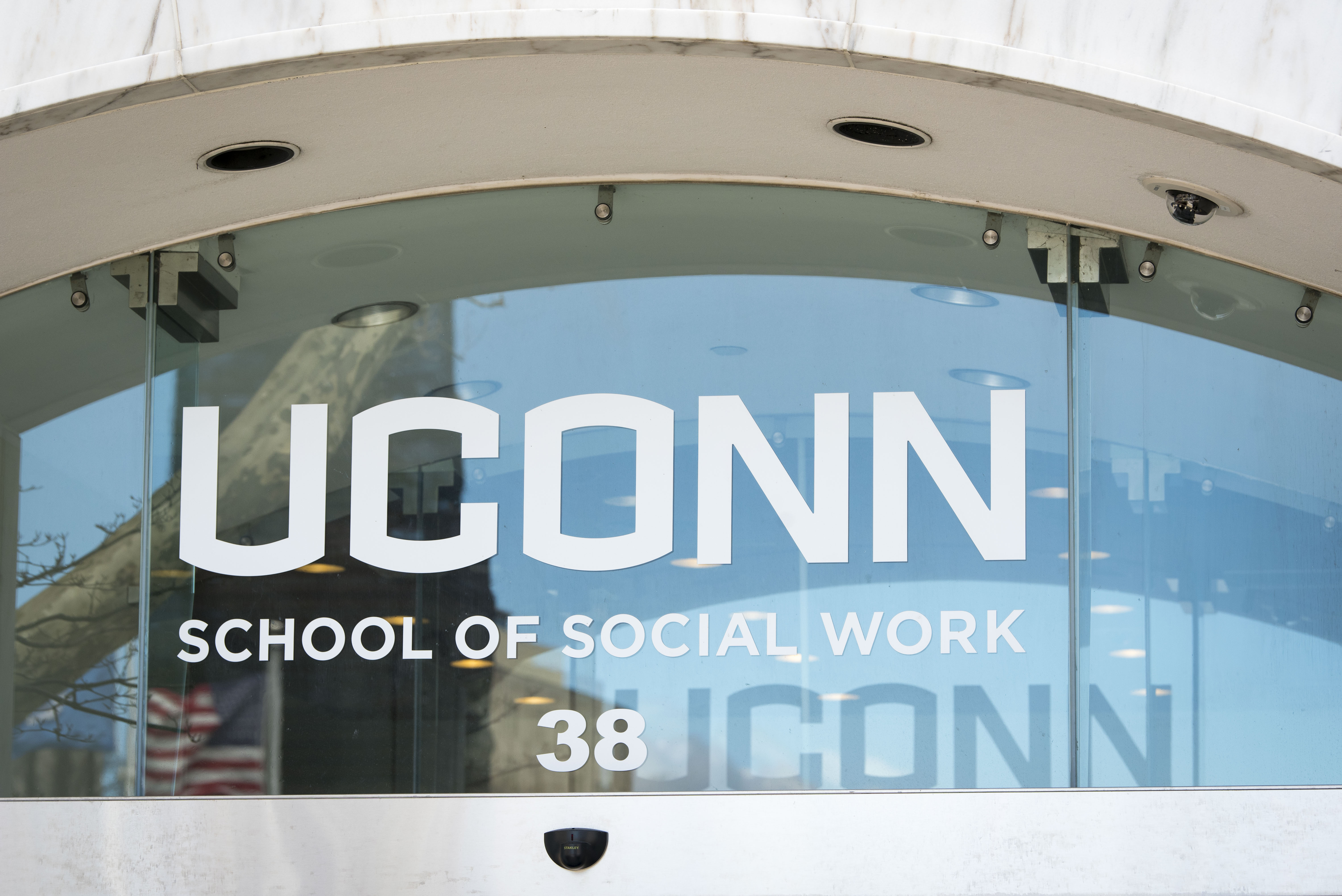Using quantitative data to show the scale, challenges, and capacity to effectively heal and serve victims

(Sean Flynn/UConn Photo)
The very definition of the word "torture" includes the descriptors pain and suffering, and UConn School of Social Work professor Megan Berthold understands that well.
As a clinician at the Program for Torture Victims in Los Angeles prior to joining UConn's faculty, Berthold worked with a young woman from a former Soviet Union country who was tortured after being picked up by police during a student protest that promoted democracy.
Officers raped her repeatedly, told her lesbians were deserving of such treatment, and left her for dead in a field until she was found by a friend who helped her escape.
"When I first met her, she would barely come out of the bedroom where she was staying," Berthold recalls. "I did home visits. She was not functioning, she wasn't sleeping, she was too afraid to see any person except a family friend."
Berthold initially counseled the woman by talking to her through a closed door. Slowly, eventually, she persuaded her to turn the knob, step across the threshold, take a walk outside, trust again.
"Many torture survivors need medical and psychological care," Berthold says. "All have been psychologically tortured. Most have been physically tortured. Some have not had health care for years or ever."

Since 2008, the National Consortium of Torture Treatment Programs (NCTTP) has collected data and stories like this from over 17,000 torture survivors, a research study that's believed to be the largest dataset of state-sponsored torture in the world.
Now, that longitudinal study resides at UConn, with Berthold as principal investigator, co-chair of the NCTTP's Research and Data Committee, and a member of its Executive Committee.
Martin Hill from Heartland Alliance International's Marjorie Kovler Center in Chicago is the study's co-principal investigator and co-chair of NCTTP's Research and Data Committee, and Brian MacMillan from Bellevue Program for Survivors of Torture in New York City is the study's co-investigator.
The NCTTP is a U.S.-based network of 39 centers in 22 states and Washington, D.C., that work to advance the knowledge, technical capacities, and resources devoted to the care of torture survivors living in the country while seeking to prevent torture worldwide.
Member centers provide health, mental health, legal assistance, case management, and other support services to survivors. Many conduct forensic medical and/or psychological evaluations, with clinicians serving as expert witnesses in federal immigration court in asylum proceedings.
With the study now housed at UConn, Berthold, along with Hill and MacMillan, will work with the NCTTP's Executive and Research and Data committees to decide its direction and scope, as well as how the findings will be disseminated. By fall, over a dozen years' worth of data will be transferred to UConn and fresh data will be added annually.
"We will continue to use the data to advocate for legislation and funding to support survivors of torture," Berthold says. "We will use it for public education and to help train professionals to provide care. We have been researching the impact of torture and will expand our efforts to understand what factors contribute to the resilience and well-being of survivors. Our research findings help to inform services and treatment."
She adds that the NCTTP also will continue to collaborate with partners – such as the International Rehabilitation Council for Torture Victims, a global network of medical and legal professionals from 160 rehabilitation centers in 76 countries - to document the scope of torture around the world and the impact of rehabilitation services.
Targeted for political, religious, sexual differences
Berthold says torture survivors can be anyone, but often they have one commonality: Officials in their home country have deemed them a threat.
"They may have been part of a political opposition group fighting for democracy in their country," she explains. "Maybe they were a religious or ethnic minority in their country, or they are gay or transgender. In some countries, those convicted of acts of homosexuality or who are transgender may face the death penalty. We have also worked with men, women, and children fighting for women's rights or against the practice of female genital mutilation."
Some torture survivors are highly educated professionals, while others have had no formal education and come from rural areas, she says. A number come from Latin America, but the majority served by NCTTP are from Africa.
The NCTTP's research study has collected data from people who hail from 125 countries, including those who left places like Cambodia and the former Yugoslavia during unrest there decades ago. Most recently, individuals have escaped such countries as Afghanistan, Syria, and Ukraine.
"Americans tend to think that most refugees and asylum seekers are coming from countries over the southern border, but there are many from other parts of the world," Berthold says.
The top eight countries represented in the NCTTP's study are in ranked order: Iraq, Ethiopia, Cameroon, Uganda, Bosnia, Democratic Republic of Congo, Cambodia, and Afghanistan.
"These data will help to flesh out the ebb and flow of torture survivors coming to and receiving treatment in the United States," Hawthorne Smith, NCTTP president and director of the Bellevue Program in New York City, says of the study's data. "Beyond compelling qualitative data and stories that already exist, this study will allow us to use hard quantitative data to show the scale, the challenges, and the gaps between need and capacity to effectively heal and serve this population."
Because healing is possible.
That young woman from the former Soviet Union country who Berthold needed to persuade to come out of her room, today holds a job, is raising a family, and is active in her community.
But getting to that point takes a village of providers, some offering legal services, others with medical or mental health expertise, and still more that help with finding employment, housing, financial assistance, and general support.
"I have witnessed hundreds of survivors heal and thrive after torture. The resilience and strength they drew on to endure sometimes years of torture, coupled with culturally and trauma-informed support and intervention provided by NCTTP centers, enable healing," Berthold says. "They will never forget what happened and the losses they suffered, but over time I have seen many regain hope for the future and rebuild meaningful lives."






